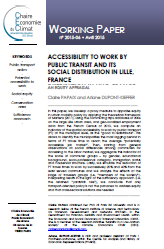
The energy-economic growth relationship: a new insight from the EROI perspective
par Florian Fizaine et Victor Court
(disponible en anglais uniquement)
In the present paper we relate the recent estimations of thehistorical (1800-2011) global EROI of fossil fuels production performedby Court and Fizaine (2015) to the tremendous increase in GrossWorld Production that the global economy has encountered duringthe same period. We first show that on this entire period of study,there is a power inverse relationship that exists between the averageprice of aggregated fossil energy and its EROI. More precisely, wefind that this long-term relationship is constituted of short-termrelations that shift over time. We interpret these shifts as short-termcycles of EROI decrease/price increase/innovation to higher EROI.Furthermore, on the more restricted 1950-2011 time period on whichwe have continuous year-to-year data, we find a clear correlationbetween the EROI level of aggregated fossil energy and the growthrate of the Gross World Production (GWP). With the same data, weare also able to show that in order to have a positive growth rate,the global economy cannot afford to allocate more than 15% of itsGWP to energy expenditures. In other words, this also means thatconsidering the current energy intensity of the global economy, ourprimary energy system needs to have at least a minimal EROImin ofapproximately 6.5:1 (that conversely corresponds to a maximumtolerable average price of energy three times higher than currentlevel) in order for the global economy to present a positive growthrate. From these different results, we then propose a business cyclemodel based on the EROI dynamics. Our study supports the ideathat a coherent economic policy should first of all be based on anenergy policy consisting in improving the net energy efficiency ofthe economy. Doing so would lead to a “triple dividend”: anincrease of the global economy EROI (through a decrease of theenergy intensity of capital investment), a decrease of thesensitiveness of the economy to energy price volatility, and adecrease of GHG emissions associated with fossil energyconsumption.
